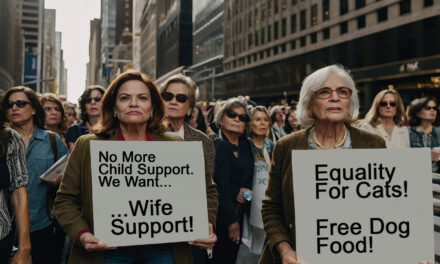Introduction: The Culture of Male Self-Censorship
In today’s western culture, masculinity is often misunderstood, ridiculed, or outright demonized. For men, speaking up without apologizing has become an act of social rebellion. Everywhere from boardrooms to bedrooms, men are taught to second-guess their voice, their instincts, and even their purpose. The pressure to be “sensitive” has mutated into an expectation to be silent, especially when expressing anything that contradicts the mainstream narrative. But what is the cost of staying quiet in the face of emotional dishonesty, manipulation, or cultural hypocrisy? Who benefits when men stay silent—and who suffers when they speak with unapologetic clarity?
1. Assertiveness vs. Aggression: The Cultural Rebrand
What once passed as confident male leadership is now mislabeled as aggression or toxicity. When a man sets boundaries or voices disagreement, he is too often met with accusations of being controlling or emotionally unavailable. According to a Pew Research Center survey, 58% of men feel uncomfortable expressing opinions in mixed-gender settings due to fear of backlash. Meanwhile, women are socially encouraged to “speak their truth” regardless of context. Why is male truth unwelcome unless it is filtered through feminist approval? Why must men apologize for having standards?
2. The Apology Reflex: Conditioning Through Shame
Boys are taught early to say “sorry” for taking up space, speaking loudly, or asserting opinions. This conditioning carries into manhood where apologies become the default—even when a man is in the right. Men who speak up are often coached to do so “gently,” “considerately,” and “inclusively.” But when does consideration cross over into self-erasure? If women are praised for “clapping back,” why are men punished for simply speaking up?
3. Male Expression in Romantic Relationships
Modern dating heavily penalizes men for emotional honesty unless it aligns with their partner’s
expectations. If a man critiques toxic behavior, he risks being labeled as abusive or insecure. A study by the American Psychological Association found that 72% of men in relationships felt emotionally unsupported when addressing concerns. Why is male vulnerability only valued when it’s soft, tearful, and non- confrontational? Can men truly lead or grow in love when their truths are always under feminist scrutiny?
4. The Double Standard of Emotional Expression
Women are encouraged to express boundaries, enforce deal-breakers, and seek “emotional safety.” Men are expected to tolerate emotional chaos in silence. The societal double standard is glaring: when women speak, it’s empowerment; when men speak, it’s ego. How can we claim equality while ridiculing half the population for having a voice? And who decided that male calmness is cold, while female rage is righteous?
5. The Masculine Voice: Logic as Liberation
Masculine communication tends to lean on logic, precision, and directness—qualities now labeled as “rigid” or “insensitive.” But in a world flooded with emotional manipulation, clarity is liberation. Masculine truth-telling isn’t about dominance; it’s about alignment with reality. Can men reclaim their right to speak plainly without apology? And can women finally benefit from masculine logic, rather than fear it?
6. Feminism and the Silencing of Men
Modern feminism has constructed a culture where women are protected not just from harm—but from discomfort. Disagreement is now “emotional abuse.” Boundaries are “toxic masculinity.” This creates a social
environment where men either lie to please or risk exile. A study from the National Coalition for Men found that 81% of men believe that feminist rhetoric has made it unsafe to speak honestly in relationships. How did a movement that promised equality become a gatekeeper of silence?
7. Speaking Up at Work and in Society
In corporate and public life, men who assert opinions—especially conservative or traditional ones—are often labeled as outdated or problematic. Diversity training programs frequently include sessions that stereotype masculine traits as inherently dangerous. Meanwhile, women are celebrated for “bringing their whole selves” to work. Why can’t men bring their whole selves—including masculine traits—without being punished?
8. Reclaiming the Right to Disagree
Disagreement is not violence. Dissent is not hate. Men must rediscover the strength in standing firm without explanation. You don’t need to soften your words to be worthy of being heard. The truth is not cruel just because it’s uncomfortable. When you speak from clarity, conviction, and purpose—there is no need to apologize. Are you ready to lead without asking permission?











